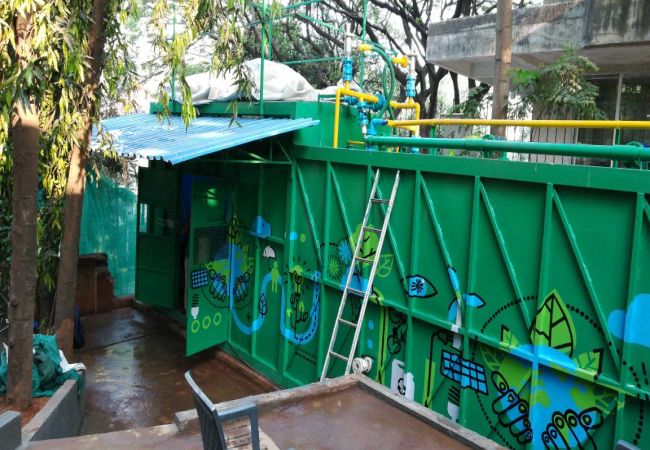Nagpur: Essel Infraprojects Ltd (EIL) will construct Maharashtra’s first Waste to Energy (WtE) plant with a capacity of 800 tonnes of waste, it was announced on Monday.
Road Transport and Highways Minister Nitin Gadkari, Railway Minister Piyush Goyal and Chief Minister of Maharashtra Devendra Fadnavis, besides other dignitaries, were present at the groundbreaking ceremony for the plant performed here this afternoon.
This will be EIL’s first in the state after implementing similar WtEs in Jabalpur (Madhya Pradesh), Ranchi and Amritsar, and the Nagpur project is scheduled to be operational within two years, said Essel Group Chairman Subhash Chandra.
For the purpose, the EIL has set up a subsidiary – the Nagpur Solid Waste Processing & Management Pvt. Ltd, to develop the project with an investment of Rs 219 crores.
The Nagpur Municipal Corporation (NMC) will contribute Rs 70 crore as viability gap funding to execute the project under the Swachh Bharat Mission.
Once operational, it will treat 80 tonnes of the total 1,100 tonnes wastes generated in Nagpur city, Chandra said.
The NSWPMPL will also operate and maintain the plant for 13 years and the NMC will pay a tipping charge of Rs 225 per tonnes to be increased by 4.5 percent annually.
The NSWPMPL will generate its revenues from the Maharashtra State Electric Distribution Company Ltd and recover its investments.
The EIL will also operate existing landfill site, develop two more and operate and maintain them for 13 years, ensuring mitigation of fires, air, and groundwater pollution.
According to the recent Swachh Survekshan Survey, 2018, of the 500 top Indian cities on the basis of cleanliness and other aspects, Nagpur ranked 55 out of the total of 434 cities surveyed.
Also Read: From Power To Waste-to-Energy Unit: Will Rajghat Plant’s Makeover Help?
NDTV – Dettol Banega Swachh India campaign lends support to the Government of India’s Swachh Bharat Mission (SBM). Helmed by Campaign Ambassador Amitabh Bachchan, the campaign aims to spread awareness about hygiene and sanitation, the importance of building toilets and making India open defecation free (ODF) by October 2019, a target set by Prime Minister Narendra Modi, when he launched Swachh Bharat Abhiyan in 2014. Over the years, the campaign has widened its scope to cover issues like air pollution, waste management, plastic ban, manual scavenging and menstrual hygiene. The campaign has also focused extensively on marine pollution, clean Ganga Project and rejuvenation of Yamuna, two of India’s major river bodies.






























